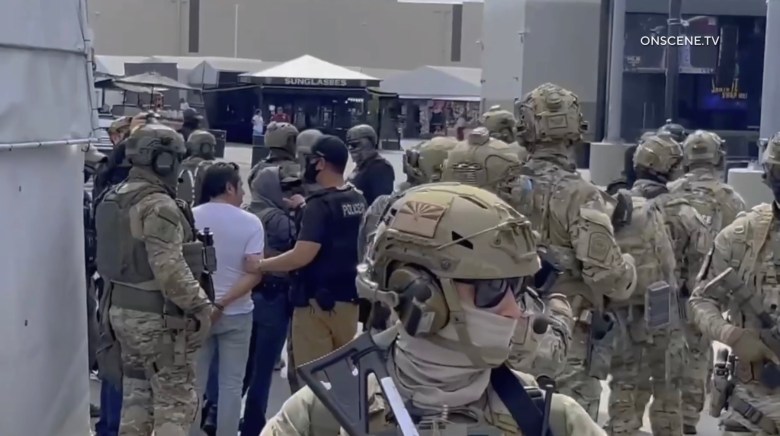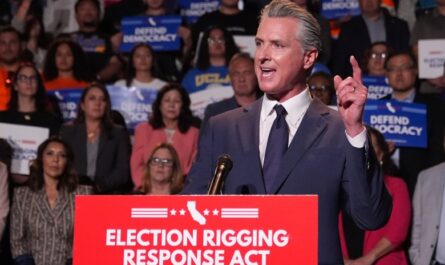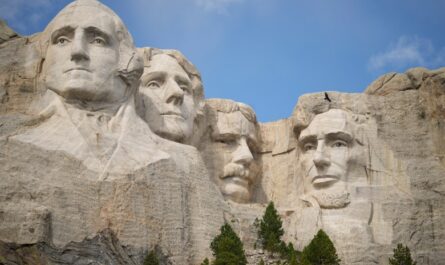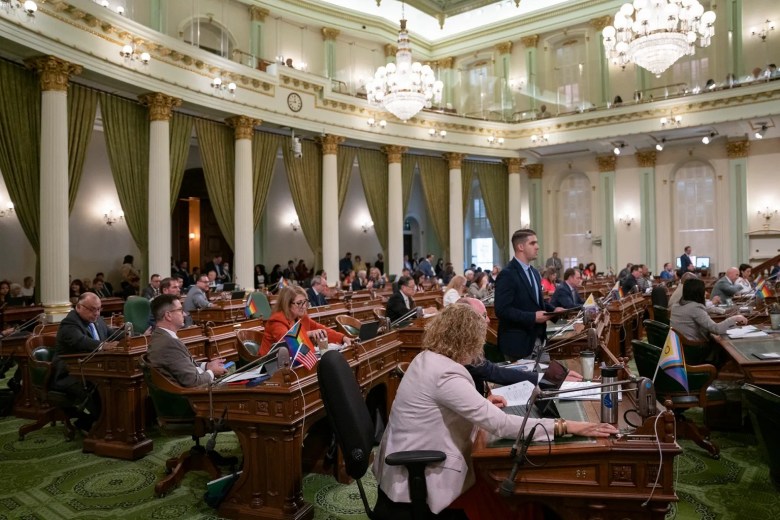A temporary order issued by a lower court prohibiting the Trump administration from making indiscriminate immigration stops and arrests in Southern California was upheld by a federal appeals court on Friday night.
The federal government urged the Ninth U.S. Circuit Court of Appeals’ three-judge panel to reverse an atemporary restraining order imposed by Judge Maame E. Frimpong on July 12 because they claimed it made it more difficult for them to implement immigration law. The hearing took place Monday afternoon.
In a lawsuit filed last month, immigrant advocacy groups said that during the administration’s crackdown on illegal immigration, the Trump administration often targeted those with brown skin in Southern California. Two U.S. citizens and three detained immigrants were plaintiffs in the case.
Frimpong stated in her ruling that there was overwhelming evidence that the methods used by federal immigration enforcement were unconstitutional. According to her, the government cannot detain someone based solely on reasonable suspicion based on their occupation, apparent race or ethnicity, accented Spanish or English, or appearance at a place like a car wash or tow yard.
The panel of the appeals court concurred and questioned why the government should fight a ruling that would stop them from breaking the constitution.
“They can hardly claim to be irreparably harmed by an injunction aimed at preventing a subset of stops not supported by reasonable suspicion if, as the defendants suggest, they are not conducting stops that lack reasonable suspicion,” the judges ruled.
In September, there will be a hearing for a preliminary injunction, which would be a more significant court ruling as the case moves further.
For weeks, protests and the deployment of the National Guard and Marines have been sparked by the Trump administration’s tough immigration policy, which has made the Los Angeles area a battleground. Many of the immigrants who have been in the United States for decades have been apprehended by federal officials from Home Depots, car washes, bus stops, and farms.
One of the claimants is Brian Gavidia, a resident of Los Angeles, who was shown on camera by a buddy on June 13 being apprehended by federal authorities while shouting, “I was born here in the states, East LA bro!”
Attorney Mohammad Tajsar of the American Civil Liberties Union told the court on Monday that they want to return us to a time when a U.S. citizen might be seized, thrown against a fence, and have his ID and phone taken away simply for working at a tow yard in a Latino neighborhood.
Since the lawsuit was filed just before the July 4 holiday and a hearing was scheduled for the following week, the federal government contended that it had not had enough time to gather and present evidence.
Attorney Jacob Roth stated that it is extremely serious to claim that several federal government entities have a policy of breaking the Constitution.
Additionally, he claimed that the lower court’s ruling was overly general and that there was insufficient evidence from immigration activists to establish that the government had a formal policy of detaining individuals without a valid justification.
He stated that the court should not have the authority to prohibit the government from considering any of the four factors—race, language, presence at a site, and occupation—that were included in the interim restraining order. Additionally, he contended that the ruling lacked clarity regarding what is legally acceptable.
Get neighborhood news in your inbox. It’s free and enlightening.
Become one of the 20,000+ individuals who receive breaking news alerts and the Times of San Diego in their inbox every day at 8 a.m.
Weekly updates from San Diego communities have also been provided! You acknowledge and agree to the terms by clicking “Sign Up.” Choose from the options below.
“I believe that using the factors for reasonable suspicion is appropriate from a legal standpoint,” Roth stated.
The government’s arguments were subjected to stern questions from the judges.
Judge Jennifer Sung stated, “No one has suggested that you cannot consider these factors at all.”
But according to her, those characteristics by themselves merely provide a broad profile and don’t meet the requirements of reasonable suspicion to deter someone.
According to Sung, a Biden appointee, those variables cannot reasonably separate people with documented legal status from those without in a place like Los Angeles, where Latinos make up as much as half of the population.
What’s the damage of being instructed not to do something you say you’re already not doing, she added?
Karen Bass, the mayor of Los Angeles, declared the ruling on Friday night to be a triumph for the rule of law and promised to shield citizens from federal officials’ unlawful use of racial profiling and other practices.

 by
by 

